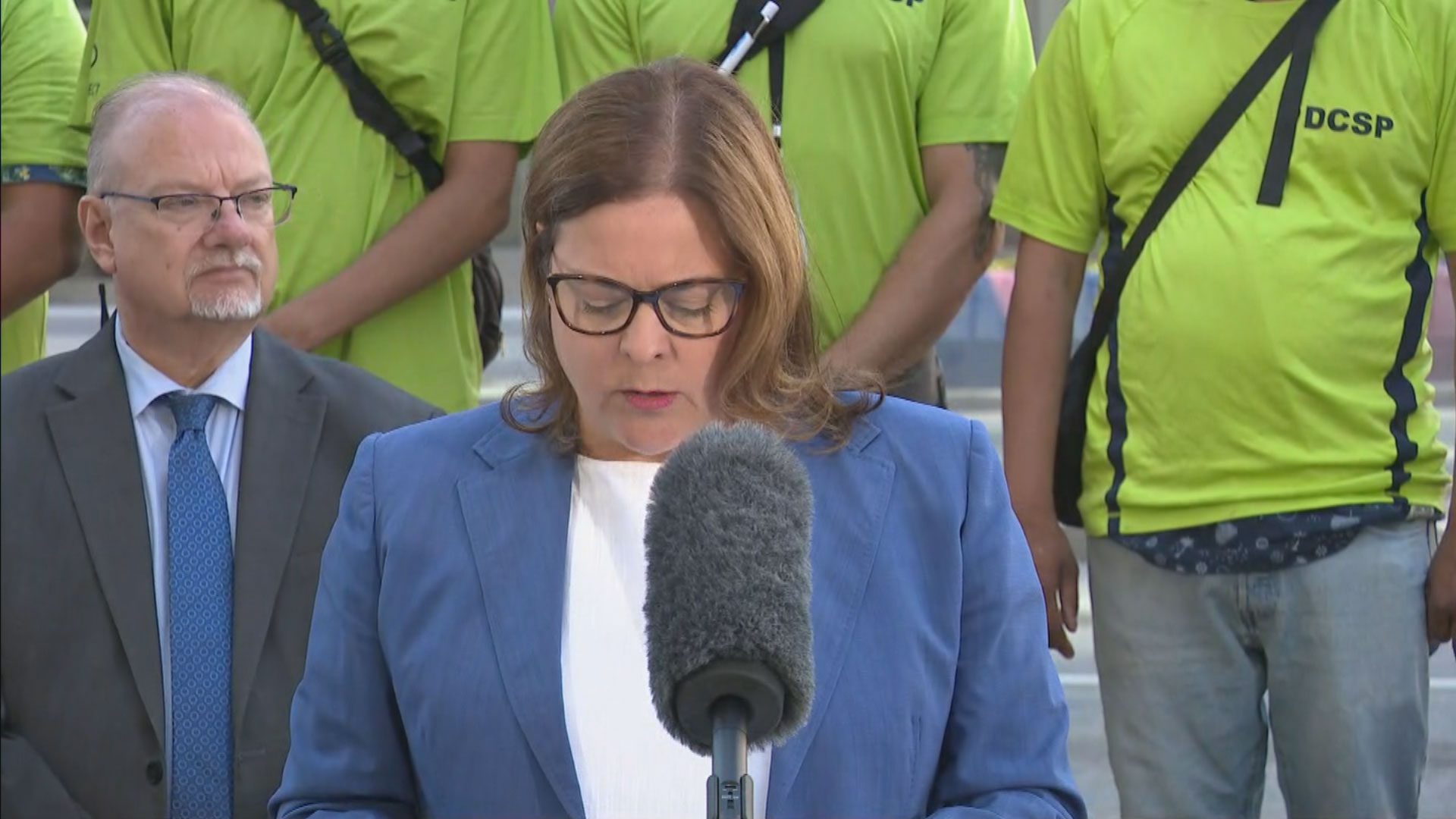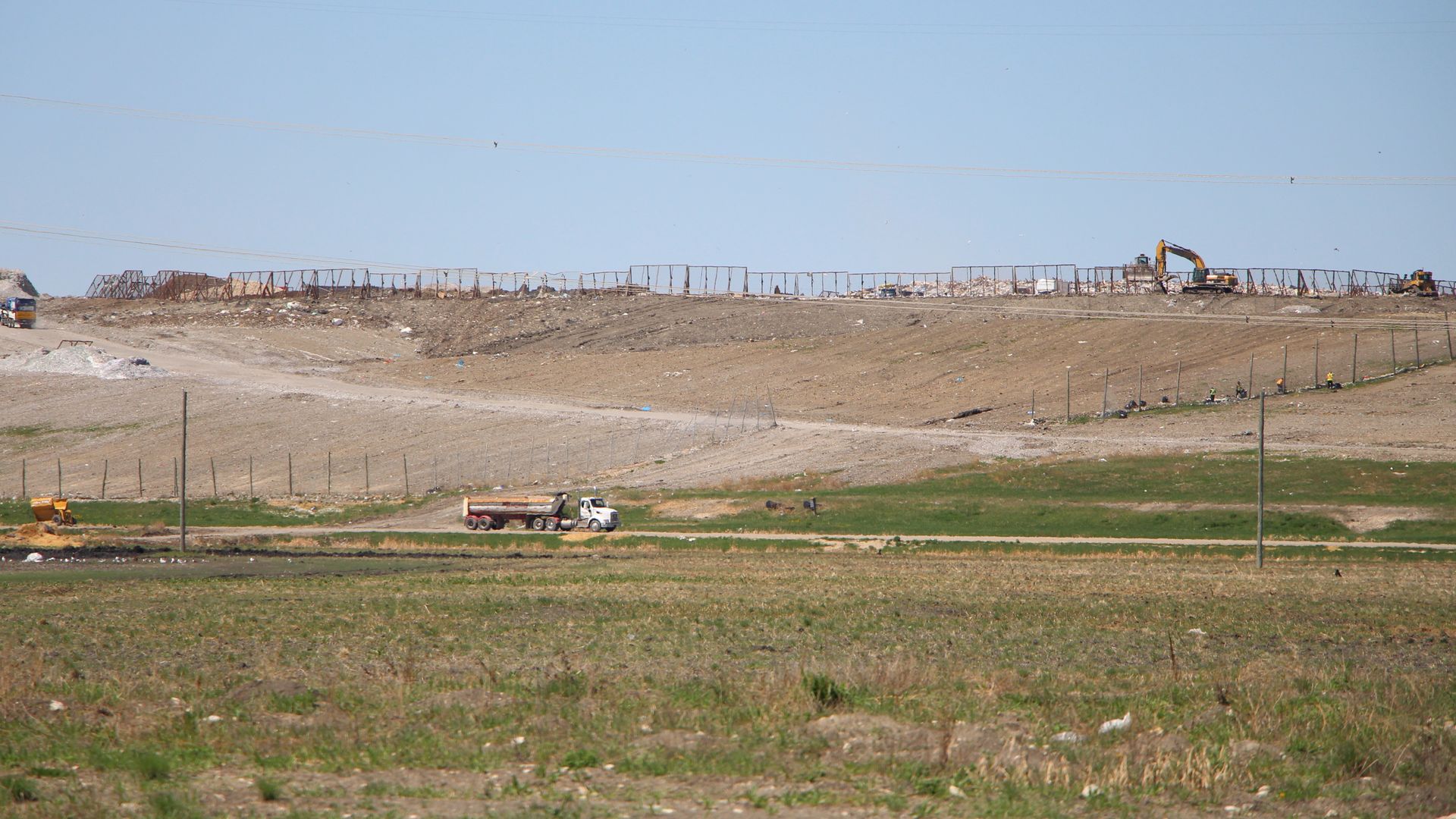
One of four full-page newspaper ads the Manitoba PC Party published in the Winnipeg Free Press. Photo: APTN News
A First Nations candidate for the Progressive Conservatives in northern Manitoba won’t challenge his party’s stance against searching a Winnipeg-area landfill for the remains of two Indigenous women.
Mike Birch, an entrepreneur and first-time candidate in the Keewatinook riding, says he’s hearing about the party’s controversial “Stand Firm against the unsafe $184 million Landfill Dig” campaign ads at the door.
“Me? I’m working hard for the people to create a better life and economy,” he said in a telephone interview last Friday.
“I can’t go over party lines to say, ‘You guys are wrong.’ I can’t, I can’t. I love my people; my heart bleeds for them.”
The two missing women, whom Winnipeg homicide detectives suspect were killed in Winnipeg in 2021, are Morgan Harris and Marcedes Myran of Long Plain First Nation, west of the city.

Police have charged Jeremy Skibicki with four counts of first-degree murder in connection with the deaths of Harris, Myran, Rebecca Contois – whose remains were located in the city-run Brady Road landfill – and a fourth unidentified victim also believed to be an Indigenous woman.
But police wrapped up their investigation without searching the Prairie Green landfill north of Winnipeg, where they believe the remains were dumped. Police cited a low probability of success in finding the remains and a high risk of exposure to hazardous chemicals.
The families were angry and stunned – viewing it as a dismissal of the painful issue of missing and murdered Indigenous women and girls (MMIWG) – and have been lobbying for a search since then.
In support, the Assembly of Manitoba Chiefs advocacy organization prepared a report that concluded a search was hazardous yet feasible, and could cost up to $184 million over three years or $84 million for one year.
But the longer the wait, the report warned, the lower the chance of finding the women.

Birch’s party leader, Premier Heather Stefanson, said in July the province would not participate in searching the landfill for the same reason given by the police – safety reasons outlined in the report.
“Asbestos and other toxic chemicals and so on and so we made what was a very difficult decision,” Stefanson said at the time.
“I have to protect all Manitobans throughout this including those that would be asked to go into those landfills.”
But the union representing some of those landfill workers is in full support of a search. And has a plan to accommodate those members, said Gina McKay, the Métis president of the Canadian Union of Public Employees (CUPE)-Manitoba.
“Seeing those (PC) billboards and that advertising hit heavy, especially during National Truth and Reconciliation Week,” McKay said via phone also Friday.
“To campaign against MMIWG2S is shameful.”

CUPE, with 37,000 members who work in schools, health-care facilities, personal care home, water treatment plants and landfills, has issued a statement calling for the landfill to be “thoroughly searched,” said McKay.
McKay says CUPE is willing to “redeploy” its members if they are temporarily replaced by landfill search experts or concerned about chemical exposure to prevent job losses.
“We will ensure that workers are redeployed and it can be done,” she said. “So it can’t be blamed on health and safety.”
Gary Anandasangaree, the new minister of Crown-Indigenous Relations, says he will soon make an announcement on searching the landfill.
“We are working with the communities impacted and then we will have something,” he told APTN Saturday. “We will come up with something very shortly, OK?”

Anandasangaree’s predecessor, Marc Miller, said last spring a search of the privately run Prairie Green wouldn’t happen without the Manitoba government. Miller was named Immigration minister as part of a cabinet shuffle last month.
“What I indicated was we’re working on something, so we will have something imminently,” added Anandasangaree.
“Imminently means, you know, in a very short period of time.”
Meanwhile, the Manitoba New Democrats led by Wab Kinew, who is First Nations, has said it supports a search of the landfill.
“We’re willing to work with the other levels of government and at least try to bring the victims home for a proper burial, dignity for their family,” said Eric Redhead, a former chief of Shamattawa First Nation and NDP incumbent in the northern Manitoba riding of Thompson.
“People I’ve been talking to and that have approached me are really, really upset this PC government has put up barriers to searching the landfill,” Redhead said in a telephone interview.

If he wins the provincial seat on Oct. 3, Birch said he has another plan for the search money.
“If we’re not going to search the landfill, let’s put the money towards addiction facilities and mental health in the future in the north, so that this doesn’t happen again,” he said, referring to the drug addictions that made Harris and Myran vulnerable to violence.
“What I’m saying right now is let’s boost our economies locally because this is what we need to do now. I believe economies will instill a lot of self pride in our people.”
– with files by Mark Blackburn










